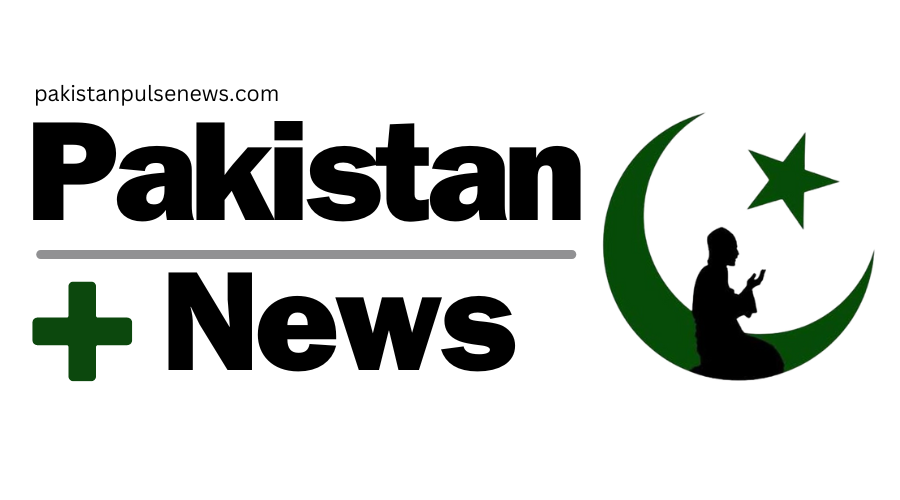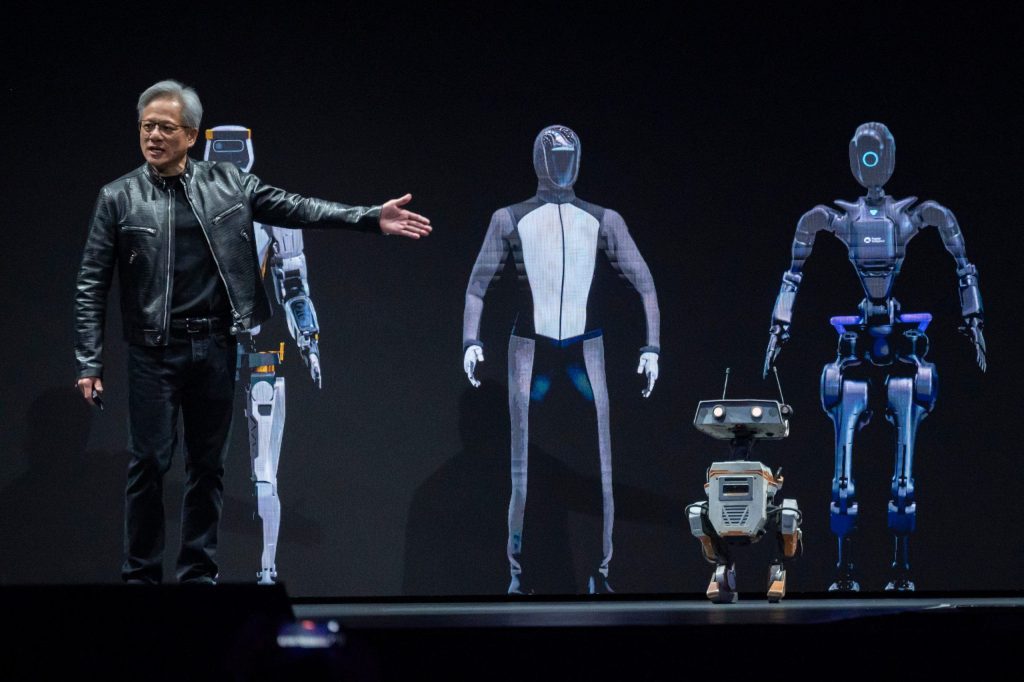Tech firm Nvidia continued to pursue its pivot from hardware producer to artificial intelligence (AI) developer with the debut of its new robot project after the Figure 01 demonstration.
“With advances in generative AI, there has been a steady stream of developments across the ecosystem where foundation models for robotic tasks have shown the ability to improve the productivity and performance of robotics developers,” David Pinto, a senior PR manager at Nvidia, told Fox News Digital.
Nvidia debuted its robot as part of Project GR00T, a major upgrade to Nvidia’s AI initiatives and a significant step deeper into the AI field overall. The project will focus on developing “foundation models,” or generative AI that uses self-supervised learning rather than external instruction or training.
Nvidia CEO Jensen Huang showcased a number of robots, including small knee-high Star Wars-themed Disney robots, at the company’s GTC conference last week. The GR00T, or Generalist Robot 00 Technology system, is built to handle the operation of robots.
US HOLDS MILITARY AI CONFERENCE TO FIND ‘RESPONSIBLE’ USE
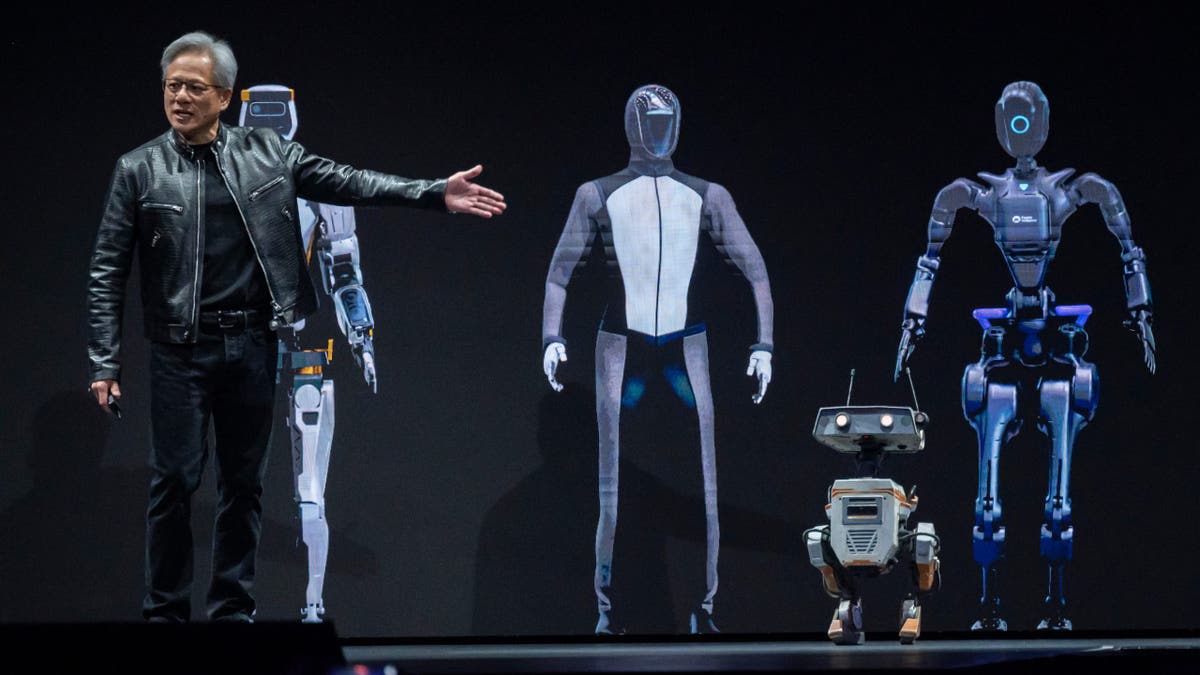
Jensen Huang, co-founder and CEO of Nvidia Corp., speaks during the Nvidia GPU Technology Conference in San Jose, Calif., March 18, 2024. (David Paul Morris/Bloomberg via Getty Images)
“These productivity gains extend from developing code for the robots to generating new simulations to test and train the robots in unstructured environments,” Pinto said.
“For the robotics industry to scale, the robots themselves have to become more generalizable. That is, they need to add skills more quickly or to bring these skills to new environments,” Pinto explained. “Project GR00T is an important initiative in this direction to advance humanoid robots in multiple embodiments.
“The foundation models will make the robots better understand complex environments and execute a breadth of robot skills and tasks in both simulation and real world.”
Pinto did not address concerns over making advances in robots with AI models running their operations even as large language models (LLM) continue to develop issues, such as the ongoing issue with “hallucinations,” in which AI models produce nonsensical results. Pinto did, however, note that “true general-purpose embodied autonomy is further out.”
WHAT IS ARTIFICIAL INTELLIGENCE (AI)?
Nvidia’s robot utilizes a new computer system called Jetson Thor, which is designed to perform complex tasks and interact “safely and naturally with people and machines,” including a “system-on-a-chip” to handle the immense demands on processors to run AI models.
Nvidia first assumed a central role in the space through its chip manufacturing, with countries and companies seeking to buy up all the semiconductor chips and microprocessors on the market following public engagement with ChatGPT and mainstream attention on AI models and platforms.
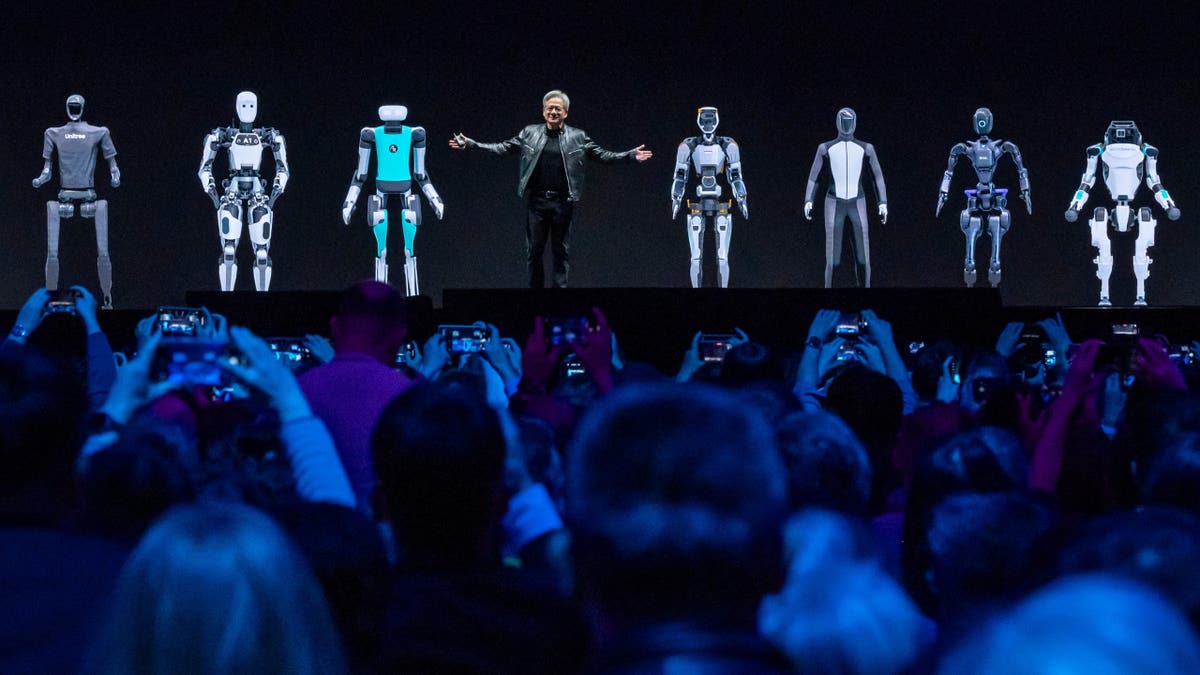
Jensen Huang, co-founder and CEO of Nvidia Corp., center, during the Nvidia GPU Technology Conference in San Jose, Calif., March 18, 2024. (David Paul Morris/Bloomberg via Getty Images)
The company’s revenue rose 206% over the prior year in its last quarter of 2023 due to the surge in AI interest and demands. The United Kingdom, for example, pledged to spend hundreds of millions of pounds to purchase chips for researchers and developers to pursue breakthroughs and remain at the cutting edge of the industry as nations jockey for a leading role in AI.
The company’s pivot to AI development outright started late 2023 and largely flew under the radar until The New Yorker published an article looking at Huang’s efforts to unify Nvidia’s computer graphics research with its generative AI research.
GOOGLE ‘WORKING AROUND THE CLOCK’ TO FIX ‘UNACCEPTABLE’ GEMINI AI, CEO SAYS
Seeing how AI became the company’s biggest revenue source after nearly a decade of riding off the success of selling chips for gaming computers, leadership has started showcasing more of the AI-focused projects in development, including with robots.
“We are already seeing robots becoming more intelligent and capable of performing multiple useful tasks in a given environment with Isaac Perceptor bringing in advanced AI capabilities for mobile robots and Isaac Manipulator for industrial manipulation arms,” Pinto said of Nvidia’s robot efforts.
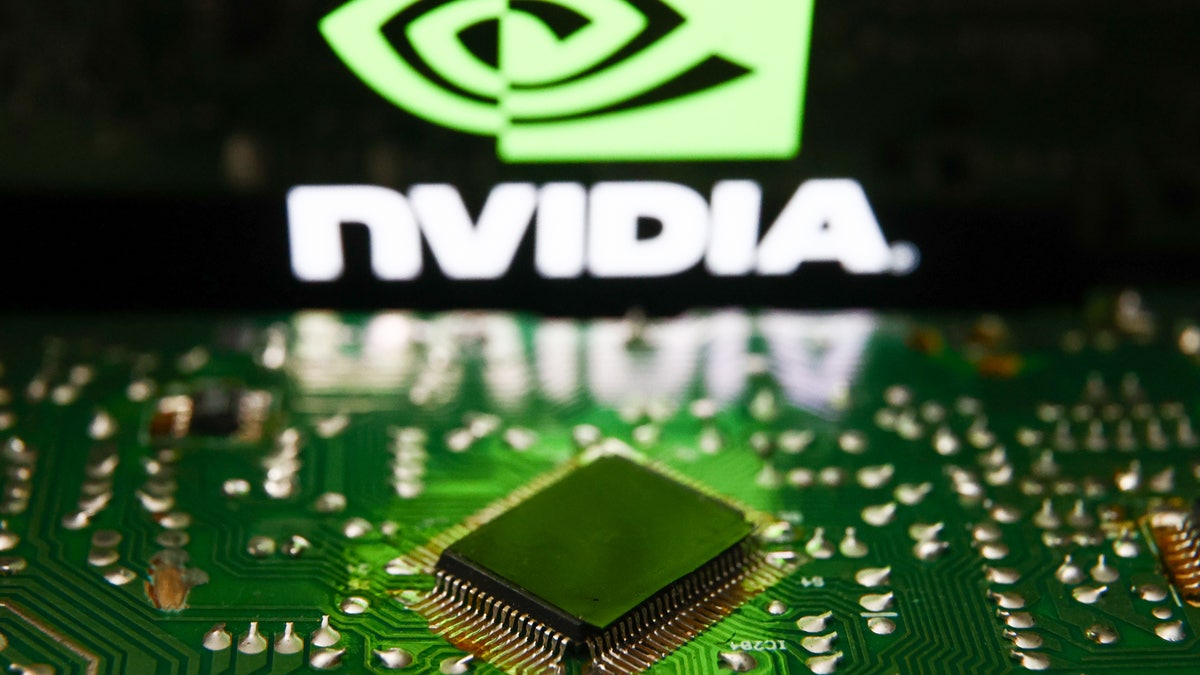
The Nvidia logo displayed on a phone screen with a microchip in Krakow, Poland, July 19, 2023. (Jakub Porzycki/NurPhoto via Getty Images)
“There’s continued focus on mission-specific problems while making them more generalizable for various industries and use cases.”
OpenAI last year partnered with robotics company Figure to add its GPT model to the Figure 01 robot, which earlier this month set the internet abuzz with a public demo.
The robot provided overly realistic responses and movements, seemed able to distinguish between organic and inorganic matter and explained the nuances of its decisions. Some outlets described the robot’s actions as falling into the “uncanny valley,” where the ability to distinguish between authentic and synthetic becomes almost impossible.
Figure 01 is less than two years old but managed to persuade the likes of Amazon founder Jeff Bezo to invest heavily. Nvidia also has invested in Figure, according to The Associated Press.
“If we can just get humanoids to do work that humans are not wanting to do because there’s a shortfall of humans, we can sell millions of humanoids, billions maybe,” Figure CEO Brett Adcock told The Associated Press last year.

